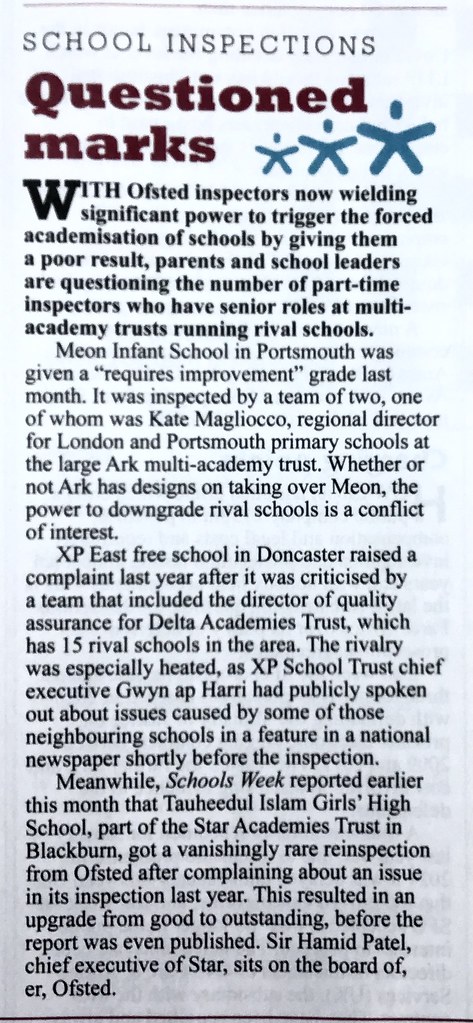Yes, I was lumping Academies and MATS together for the convenience of making a general point.
I am aware that individual academies and indeed some MATS are very well run and are managed by conscience Heads and executive heads. It seems to me that you are to be congratulated for being one of those conscientious people.
However, as the Dispatches programme reveals the system as a whole is open to abuse. A MAT is subject to the same disclosure of interest requirements as any other school, but that did not stop the abuse from happening. If you are a conscientious head you will not have been looking for ways to manipulate the system, others clearly have, and it seems, succeeded.
It doesnt even have to be open abuse, the perfectly legal practice of inflated salaries being paid to School Managers and their relatives does go on, and goes on at the same time as staff are made redundant. Yes, I know a school will have to give its budget run out at a time of redundancy, but getting hold of a breakdown of those figures when a school doesnt want to reveal them is a devil of a job.
As I have already said, individual Academies and MATS can be very good, and dealing with an efficient HR dept of a MAT can sometimes be easier than dealing with LA Education Services, but that is not always the case. And the wider point that Academies and MATS are open to abuse, despite all the systems supposed to ensure they are not, is, if C4 and the BBC are to be believed, a valid one


